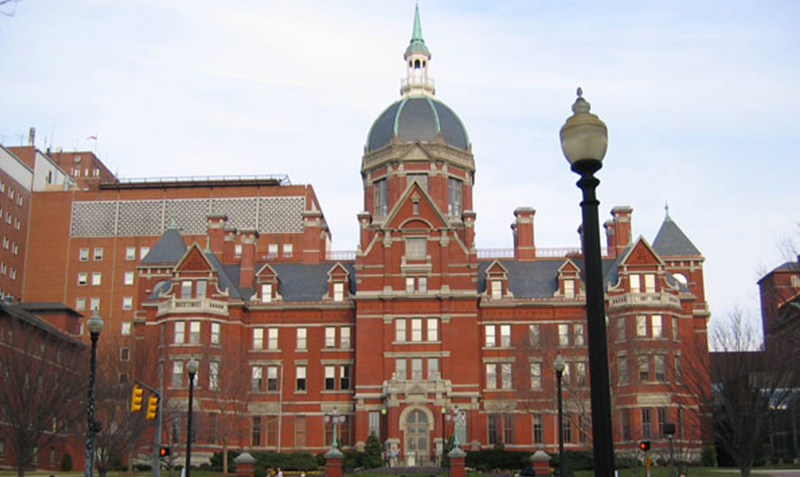Press Release
New Report – Johns Hopkins hounding thousands of patients with medical debt lawsuits, seizing wages

Disproportionate impact on African American Baltimore residents
Despite its reputation as one of the most prestigious medical institutions in the U.S. Johns Hopkins Hospital has a shocking record of hounding low income patients for medical debt – filing thousands of lawsuits, garnishing wages and seizing bank accounts.
That’s the findings of a new research report from the AFL-CIO, National Nurses United, and the Coalition for a Humane Hopkins. To view the report, go to: Taking Neighbors to Court-Johns Hopkins Hospital Medical Debt Lawsuits
Since 2009, Johns Hopkins Hospital has filed more than 2,400 lawsuits in Maryland courts seeking payment of alleged medical debt from former patients. Many would likely qualify for reduced, or charity care, but were apparently not informed of that option by the hospital despite the obligation of Maryland’s charity care provisions.
In more than 400 cases, the hospital has won garnishments ordered of wages or bank accounts.
"It's tragic that Johns Hopkins has strayed so far from one of its core values to provide exceptional care to low-income people," said AFL-CIO Secretary-Treasurer Liz Shuler. "It's a shame that a not-for-profit, prominent institution that claims to be a pillar of the community continues its questionable medical debt practices.
“For a wealthy hospital like Johns Hopkins to hound economically distressed patients for even minor medical debt is unconscionable and disgraceful,” said NNU President Zenei Cortez, RN. “For Hopkins, the payoff is minor, but for the families they target the consequences can be devastating, creating additional hardship for thousands of the most vulnerable members of the community.”
“This data makes us wonder what is the message that the institution is sending to its neighbors?” said Dr. MariselaGomez, member of the Coalition for a Humane Hopkins. “Could it be ‘We don’t want to provide health care for you and your families’? If this is so, then Johns Hopkins continues to be an unfriendly and discriminating neighbor in its majority African American neighborhood of East Baltimore.”
Targeting Low-Income Patients African American Patients
Hopkins’ medical debt practices also have a disproportionate impact on African American Baltimore residents, noted the study. The 21213 Zip Code area, which contains the largest number of residents sued by Hopkins, for example, is 90 percent African American and has a poverty rate nearly triple the state average.
Overall, of the top 10 zip codes where Hopkins medical debt defendants reside, nine are located in Baltimore, including many in neighborhoods adjacent to the hospital with high levels of poverty.
Not Fulfilling Its Tax-Exempt Non-Profit Obligations
Hopkins is a not-for-profit institution that receives tens of millions annually in federal, state, and local tax breaks. In return for subsidies and tax breaks, Johns Hopkins is required to provide charity care or discounted care to low-income patients who lack insurance, or who lack enough insurance to cover their out-of-pocket expenses. Yet it falls fall short of that obligation.
Johns Hopkins hardly needed the help. In 2018, medical debt sought by Hopkins in court accounted for less than one-tenth of 1 percent of Hopkins’ operating revenue.
In 2017 alone Johns Hopkins received $164.4 million in tax exemptions and $25 million in rate support to provide charity care, $3.3 million of which was in excess of actual charity care provided. It ranks last or next to last among Maryland hospitals in charity care relative to the rate reimbursements it receives from the state.
Hopkins’ excess charity care funds from 2017 alone could have forgiven nearly all of the $3.4 million sought in medical debt cases filed by Hopkins in Maryland courts from 2015 to 2018.
The AFL-CIO, nurses and community activists call on Johns Hopkins to immediately:
- Cancel all medical debt lawsuits it has filed against low -income patients.
- Cease the onerous practices of garnishing wages of low-income patients.
- Substantially increase the amount of charity care it provides for low-income patients who are unable to meet the high price of its hospital medical bills.
- Provide information about eligibility to all patients who may qualify for free or reduced medical care at Johns Hopkins facilities.
Nationally, some 43 million Americans face unpaid medical debt, a significant problem at a time that one in six Americans who have employer-paid insurance made “difficult sacrifices” last year, such as cutting back on food, using up all or most of their savings, getting extra jobs, or moving in with friends, to be able to pay un-payable medical bills, according to a Los Angeles Times report last week.
View the report here:
Taking Neighbors to Court: Johns Hopkins Hospital Medical Debt Lawsuits:
https://act.nationalnursesunited.org/page/-/files/graphics/Johns-Hopkins-Medical-Debt-report.pdf